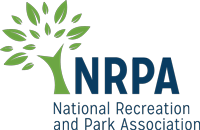Providing your parents detailed schedules to outline all of their child’s camp activities is a cornerstone to any well-run camp. Ideally, you should be able to schedule out your entire camp and provide this to the parents well ahead of time. Detailed activity schedules can be distributed weekly along with supplemental materials that may be needed for off-site trips or camp events. There are several different types of schedules you can use based on what you are comfortable and what your camp has to offer:
- Weekly Schedule Spreadsheets: These schedules show the activities broken down by day and time each week and are generally pretty detailed. Each day would be on the top and times on the side. Each block is then filled with an activity such as “Group 1 Outside Activity” “Group 2 Arts and Crafts”, etc. You can complete basic versions of your weekly schedule for the entire summer and fill in detailed activities week to week if needed.
- Grid Schedules: This is a matrix grid that can be used for the entire summer as a general template or week to week if you want to make it more specific like above. It would list times on the side and locations on top. Each box would be filled with a group. It does not have specific activities on it, but it shows the time and location on where each group will be. Supplemental materials can go along with it to outline detailed activities.
- Calendars: Calendars can be created for each age group with times and activities plugged in for each day.
- Activity Lists: Rather than using a spreadsheet, grid, or calendar you can simply list out the days, times, activities for the week for each group or the camp as a whole. There is flexibility here to be more detailed as you won’t have the space constraints as the others.
- Supplemental Material: Regardless of what type of schedule you use, you should always have supplemental material to go along with it to give further details of the week’s activities such as trips, camp events, or activities that require campers to have certain items, like a bathing suit and towel. Make sure your supplemental material gives any additional details for the activities that week, month, or entire summer, depending on how often you want to distribute schedules.
Here are some tips to help you formulate your camp schedules:
- Start Early: Planning takes time and if you don’t start early enough it will sneak up on you.
- Set Aside Time to Plan: Starting early is a great thing to do, but if you don’t buckle down and set aside that needed time it will fly by and before you know it camp will be here.
- Be Consistent: There should be a rhyme or reason on why you are scheduling certain activities to take place at certain times. Parents and campers like structure and consistency so trying to do things like swim, have lunch, or do a certain type of activity should be around the same time each day for their group.
- Keep it Organized: As mentioned above along with consistency should come structure. Use a schedule template that works for you and stick with it. Keep it simple and easy to read. If your schedules are all over the place you run the risk of parents and campers missing something or not using them all.
- Build in Themes: Themes are important part of any camp that will make your camp even more special for your campers. A good mix of weekly and even daily themes will keep your kids engaged and having fun. Build your trips and activities around your themes as best as possible.
- Stick with Tradition: Chances are your camp is full of tradition and things the kids look forward to each summer. Make these types of activities the backbone of your schedule and build from there.
- Research New Activities: There is no limit to the type of activities you can incorporate into you camp. Always bring a new mix of activities to the table for every camp. The same old things could lose their flavor so always try to keep things fresh. You never know what will stick and eventually become a new camp tradition!
- Get Your Schedule Out Early: At the very least have a template available for parents at registration. From there you can communicate detailed activities on a weekly basis.
Avoid trying to schedule activities on the fly and dropping new information on parents the day before it happens. Always give as much notice as possible and always have a contingency plan in case something changes unexpectedly. Communicate schedules and schedule changes as much as possible with as much notice as possible. Taking your schedules seriously will show parents and staff members that you are organized, have attention to detail, communicate well, and have an overall well-run camp.
Favorite







